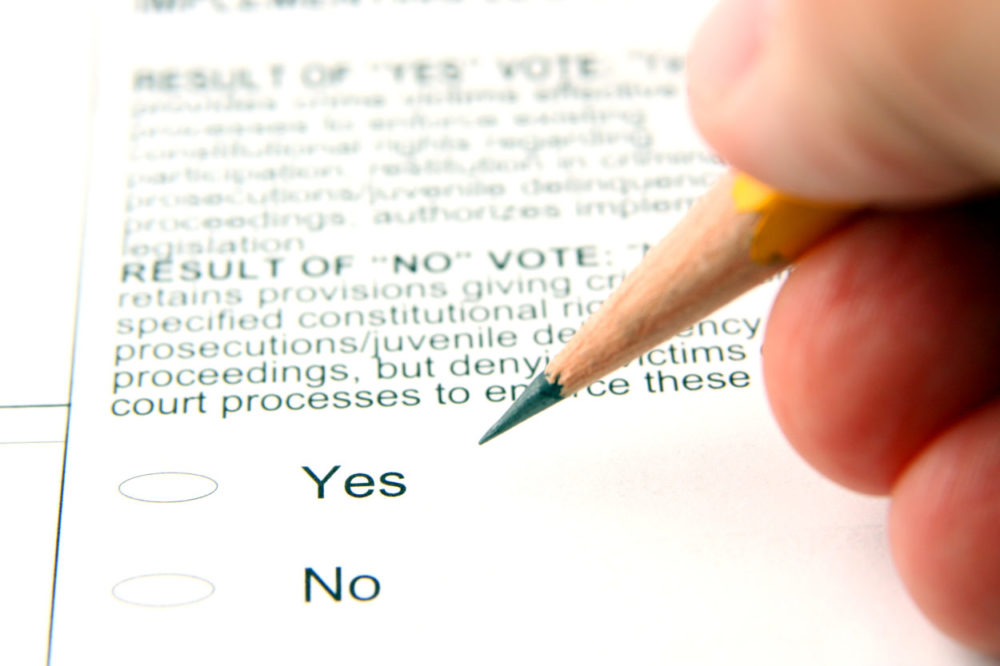A court case that could affect anti-discrimination laws in New Mexico will soon be before the U.S. Supreme Court.
The case, Fulton v. the City of Philadelphia, will be heard by the Supreme Court next month. The case involves a Catholic-based organization that sued the city of Philadelphia because the city refused to allow the organization to continue a contract to house youth in foster care because the organization discriminates against same-sex couples.
Marshall Martinez, interim executive director of Equality New Mexico, said that if the case is decided by a conservative majority on the court, then a contractor who receives tax payer funding to provide, for instance, homeless shelter services or foodbank services through a government contract could refuse to house or provide food to queer or transgender people.
Martinez said that if the court rules against the city of Philadelphia broadly and bases its opinion on a religious argument, then the case could be interpreted to allow one faith-based organization to discriminate against people of other faiths and deny services to people of other faiths.
Since the death of Justice Ruth Bader Ginsburg, the conservative bloc on the Supreme Court gained a 5 to 3 majority on the bench. If Judge Amy Coney Barrett is nominated by the U.S. Senate, then the court will have a 6 to 3 conservative voting bloc.
“Given the history of Barrett, if she is confirmed, this ruling could be very bad for services and for folks seeking services across the country,” Martinez told NM Political Report. “But here in New Mexico, where the majority believes in equal access and equal opportunity, one organization could determine what is best to do with taxpayer money based on its own religious beliefs.”
There are other reasons, particularly for New Mexico residents who identify as LGBTQ, to be concerned about a Barrett confirmation, Martinez said.
Earlier this week Justices Clarence Thomas and Samuel Alito wrote a dissent when the court declined to hear a case brought by Kentucky county clerk Kim Davis who refused to issue marriage licenses to same sex couples in 2015.
Although both Thomas and Alito agreed with the court’s decision not to hear the Davis case, Thomas wrote in his dissent that religious liberty is being infringed upon by the court’s marriage equality ruling of 2015 and said the problem was one that “only the court can fix.”
Martinez said that Thomas’ dissent is “a clear signal to folks that this is the avenue they should fight.” Martinez said should a move could embolden state legislatures to start passing discrimination laws against same sex marriage that would then be challenged in court.
Martinez said Thomas’ dissent shows that marriage equality “is not close to over,” for the LGBTQ community.
“Two very conservative justices took the first opportunity they can to attack marriage equality under the guise of freedom of religion. I think this is a reminder to the LGBTQ community and their allies that there are still folks who are going to use every opportunity they can to take away the rights we fought for,” Martinez said.
Carrie Hamblen, who is running in an open race as a Democrat for state Senate District 38 against Republican Charles Wendler, was, along with her wife, the fifth same-sex couple in New Mexico to be married in 2013. Doña Ana County County Clerk Lynn Ellins made history in New Mexico when he decided the state constitution did not prohibit same-sex marriages and he began to issue licenses. Hamblen and her wife dropped their work, met at the courthouse and got married the same day Ellis began issuing the licenses, she said.
Shortly after, the state supreme court ruled that same-sex marriage was legal in New Mexico.
A previous attempt to issue same-sex marriage licenses in Sandoval County in 2004 resulted in those licenses being invalidated, Hamblen said. In 2013, then-Attorney General Gary King said in an opinion that the licenses should be valid unless specifically voided by a judge.
“We always felt married,” Hamblen said of herself and her wife. “The really important thing for us to have it legalized is what every gay couple goes through. If something happens to your partner in the emergency room, you don’t have access because you’re not legally connected to that person.”
Hamblen said she and her wife have not faced that problem, but she said she knows dozens of other gay couples who have.
“To have those protections snatched away from us, because of somebody’s fundamental belief rather than what is just and right under the law is a disgusting display of a lack of humanity and consideration,” Hamblen said of the potential for the Supreme Court to revisit marriage equality.
Other benefits same sex couples gain by marriage include being able to file taxes jointly, being legally able to hold mutual investments, a home and savings plan together and being covered on a spouse’s health insurance policy, Hamblen said.
Without the legal protections that marriage affords, Hamblen said that if her spouse predeceased her, she could potentially be “kicked out of my house because our relationship would not be recognized as legal. I could be denied access to our mutual investments and savings plan. I could lose health insurance benefits.”
Ellins, who is now a Doña Ana County Commissioner, told NM Political Report that the state supreme court’s ruling on same sex marriage, which came after he began issuing same sex licenses in 2013, would protect same sex marriage in the state in the event the Supreme Court should reinterpret the marriage equality ruling it proffered in 2015.
“No matter what the [U.S.] Supreme Court does, we have a state supreme court ruling that protects gay marriage, so it wouldn’t affect us here in New Mexico,” Ellins said.
But, Martinez said that the Supreme Court could “come at it from a different angle.”
He said that if the Supreme Court ruled against marriage equality from the “guise” of religious freedom, “a rural county clerk could say ‘I have a religious right to refuse these marriage licenses,’ then same sex couples in that county could have to travel hundreds of miles to get married.”
“It could be the law on paper but only on paper. It would be inaccessible to some people in some communities,” Martinez said.
Hamblen said that New Mexico has some of the strongest anti-discrimination laws in the country. But, she warned, the battle is not over.
“We have to make sure that queer couples have the same protections that heterosexual couples have and don’t have to worry about the Supreme Court deciding is null and void,” she said.






















